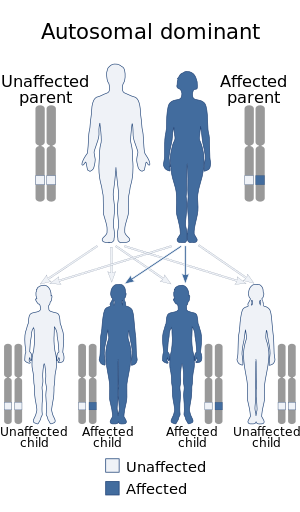HD 34790
HD 34790| 관측 데이터 에폭 J2000 이쿼녹스 J2000 | |
|---|---|
| 별자리 | 오리가 |
| 우측 상승 | 05h 21m 12.68806s[1] |
| 탈위임 | +29° 34′ 11.5926″[1] |
| 겉보기 크기 (V) | 5.66[2] |
| 특성. | |
| 스펙트럼형 | A1Vs[3] |
| U-B색지수 | +0.13[4] |
| B-V색지수 | +0.06[4] |
| 아스트로메트리 | |
| 방사 속도 (Rv) | -18.7±0.9km[5]/s |
| 고유 운동 (μ) | RA: −0.40[1]mas/yr Dec.: +0.91[1]mas/yr |
| 시차 (π) | 11.29 ± 0.32 마스 |
| 거리 | 289 ± 8 리 (89 ± 3 pc) |
| 궤도[6] | |
| 기간 (P) | 2.1517 d |
| 편심성 (e) | 0.0 |
| 페리아스트론 신기원을 이루다 (T) | 21140.396 |
| 세부 사항 | |
| 루미도 | 35[7] L☉ |
| 온도 | 8,682[7] K |
| 회전 속도 (v sin i) | 52km[8]/s |
| 기타 지정 | |
| 데이터베이스 참조 | |
| 심바드 | 자료 |
HD 34790은 북쪽 별자리인 오리가에 있는 이중선 분광형 이항성계다[9].겉보기 크기를 합친 5.66으로 육안으로는 희미하게 보인다.[2]히파르코스 위성의 관측을 바탕으로 약 289광년 떨어져 있다.[1]A형 주계열성별에 [3]걸맞게 A1Vs의 복합별 분류를 갖췄으며, 태양의 35배에 달하는 광도로 빛난다.[7]
두 별은 불과 2.15일의 기간과 0의 이심률로 서로 공전하고 있어 궤도가 원형에 가깝다는 것을 알 수 있다.[6]그들은 서로 충분히 가까운 궤도를 돌고 있어서, 그들의 회전 기간이 거의 깔끔하게 잠겼을 가능성이 크다. 즉, 그들은 항상 서로를 향해 같은 얼굴을 유지한다는 것을 의미한다.[9]
참조
- ^ a b c d e van Leeuwen, F. (2007), "Validation of the new Hipparcos reduction", Astronomy and Astrophysics, 474 (2): 653–664, arXiv:0708.1752, Bibcode:2007A&A...474..653V, doi:10.1051/0004-6361:20078357, S2CID 18759600
- ^ a b Oja, T. (August 1991), "UBV photometry of stars whose positions are accurately known. VI", Astronomy and Astrophysics Supplement Series, 89 (2): 415–419, Bibcode:1991A&AS...89..415O
- ^ a b Cowley, A.; et al. (April 1969), "A study of the bright A stars. I. A catalogue of spectral classifications", Astronomical Journal, 74: 375–406, Bibcode:1969AJ.....74..375C, doi:10.1086/110819
- ^ a b Osawa, K.; Hata, S. (1962), "Three-color photometry of B8-A2 stars (II).", Annals of the Tokyo Astronomical Observatory, 7: 209, Bibcode:1962AnTok...7..209O
- ^ Wilson, R. E. (1953), "General Catalogue of Stellar Radial Velocities", Carnegie Institute Washington D.C. Publication, Carnegie Institute of Washington, D.C., Bibcode:1953GCRV..C......0W
- ^ a b Pourbaix, D.; et al. (September 2004), "SB9: The ninth catalogue of spectroscopic binary orbits", Astronomy and Astrophysics, 424: 727–732, arXiv:astro-ph/0406573, Bibcode:2004A&A...424..727P, doi:10.1051/0004-6361:20041213, S2CID 119387088
- ^ a b c McDonald, I.; et al. (2012). "Fundamental Parameters and Infrared Excesses of Hipparcos Stars". Monthly Notices of the Royal Astronomical Society. 427 (1): 343–57. arXiv:1208.2037. Bibcode:2012MNRAS.427..343M. doi:10.1111/j.1365-2966.2012.21873.x. S2CID 118665352.
- ^ Royer, F.; Zorec, J.; Gómez, A. E. (February 2007), "Rotational velocities of A-type stars. III. Velocity distributions", Astronomy and Astrophysics, 463 (2): 671–682, arXiv:astro-ph/0610785, Bibcode:2007A&A...463..671R, doi:10.1051/0004-6361:20065224, S2CID 18475298
- ^ a b Abt, Helmut A.; Boonyarak, Chayan (November 2004), "Tidal Effects in Binaries of Various Periods", The Astrophysical Journal, 616 (1): 562–566, Bibcode:2004ApJ...616..562A, doi:10.1086/423795


